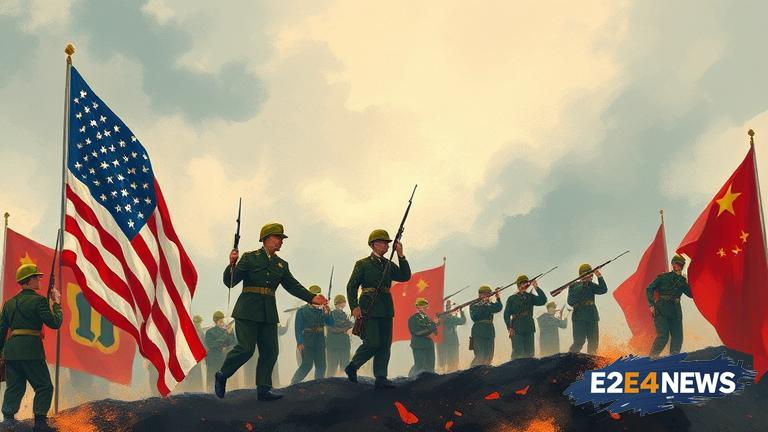The United States is facing a dilemma on whether to participate in China’s upcoming World War II anniversary event, which is set to take place in September. The event aims to commemorate the 70th anniversary of the end of World War II and China’s role in the Allied victory. China has been actively promoting the event, inviting world leaders to attend and participate in the festivities. However, the US is still undecided on whether to join, citing concerns over China’s growing military presence and territorial disputes in the region. Some argue that attending the event would be a significant diplomatic gesture, showcasing the US commitment to maintaining a positive relationship with China. Others, however, believe that participating in the event would be seen as condoning China’s aggressive behavior and undermining the US’s own interests in the region. The US has a long history of cooperation with China, dating back to the early 20th century when the two countries worked together to defeat Japan during World War II. Since then, the US and China have maintained a complex and often tumultuous relationship, with periods of cooperation and conflict. The current administration has been seeking to strengthen ties with China, but the ongoing tensions in the South China Sea and China’s human rights record have made it challenging. The WWII anniversary event is seen as an opportunity for China to showcase its growing global influence and military might, and the US’s participation would be a significant endorsement of China’s rise. However, the US is also aware of the potential risks of being seen as too close to China, particularly in the eyes of its allies in the region. Japan, in particular, has been vocal in its opposition to China’s growing military presence and has been seeking to strengthen its own ties with the US. The US is therefore facing a delicate balancing act, trying to navigate its relationships with both China and Japan while also maintaining its own interests in the region. The decision on whether to participate in the WWII anniversary event will be closely watched, as it will have significant implications for the future of US-China relations and the broader regional dynamics. The event itself is expected to be a grand affair, with military parades, cultural performances, and high-level diplomatic meetings. China has been investing heavily in the event, seeking to use it as an opportunity to promote its own narrative of the war and its role in the Allied victory. The US’s participation would be a significant boost to China’s efforts, but it would also require the US to navigate a complex web of historical and diplomatic sensitivities. Ultimately, the decision on whether to participate in the event will depend on a careful calculation of the US’s interests and priorities, as well as its relationships with other countries in the region. The US will need to weigh the potential benefits of participating in the event against the potential risks and challenges, and make a decision that reflects its own values and interests.
